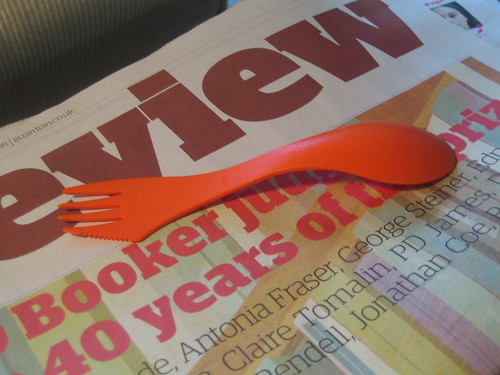Memorable Messages

My most memorable phone call came when I was thirteen years old. I was home alone, my parents were out. At the other end of the line, I was surprised and nervous to hear the voice of my headmaster, calling me Oliver. He had received some news from a secondary school in Berkshire to which I had recently applied. I had won a scholarship. I was surprised and over the moon. If I’m honest, Mr Graham sounded pretty surprised too. Excited and still feeling nervous, I scribbled a note to mum and dad (mobile phones were still a few years away), and went to bed, only to be woken by a couple of rather excited adults a few hours later.
My most memorable email arrived on the 17th of October just last year, at twenty past eight in the evening. I was sitting in the Village Tandoori in Clapham with Verity, and I certainly shouldn’t have been checking my Blackberry. It was from Michael Birch, the founder of Bebo. At one minute past nine that morning, I had written to him about Make Your Mark with a Tenner, the scheme I had started a couple of years previously. It was a long shot, but we were a hundred and fifty thouand pounds short, for a challenge we wanted to launch the following January. Over Cobra and poppadoms, an email arrived. A red light flashed. He said yes, to the full amount.
Messages can be memorable because they are unexpected, or because they bear especially good (or bad) news. They can surprise us when they come from unexpected people, or in unexpected ways. So imagine my surprise, when just over a fortnight ago, I received a message from none other than Sarah Brown, wife of the British Prime Minister. Stranger still, the message arrived not on embossed notepaper, nor by secure phonecall, but via Twitter, the social networking site. Now, it is well known that Sarah, a supporter of the Million Mums campaign, is an avid Tweeter, and has risen to become one of its most followed users in the UK. But could this really be her, by direct message, asking for my address, because she wanted to send me something?
A quick phone call to a colleague in Whitehall confirmed that yes, this was indeed the case, and I should pass on my details worthwith. Which is why this evening I am to attend a thoroughly modern gathering for a new and connected era; A Downing Tweet Christmas Party. My friend and colleague Holly Shaw, who I met through Channel 4’s Battlefront will be there and I’ve already discovered several others from around the UK who will be meeting at Number 10 to raise a glass to the Million Mums campaign. I’m looking forward to it. I’ve even told my mother, who herself is one in a million. I might call my old headmaster. He’ll probably be surprised to hear from me.


